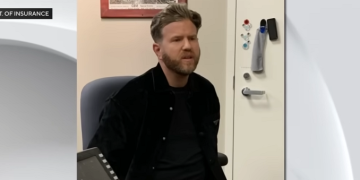
Drug addiction and abuse has been tragically growing more prevalent within the United States and across the world.
According to the Centers for Disease Control and Prevention (CDC), deaths from drug overdose have been steadily increasing over the past 20 years and are currently the leading cause of injury death in the nation.
In an effort to counter these dismal statistics, the Matrix Institute for Addictions has been striving since 1984 to research, educate, prevent, and treat drug addictions throughout the greater Los Angeles area.
With the overall goal to improve the quality of addiction treatment services and to promote a clearer understanding of such addiction disorders, the Matrix Institute works to better not only the lives of the affected individuals, but also the families who seek more information about how to assist their loved ones.
Executive director at the Matrix Institute, Jeremy Martinez, elaborated on the endeavors of the Matrix Institute.
“Matrix was established during the time of the Cocaine Epidemic, so the Matrix Model of treatment was developed to find a treatment methodology that would work for cocaine users,” Martinez said. “While the typical 12-step programs like Alcoholics Anonymous (AA) and Narcotics Anonymous (NA) are good programs, they are designed to be a support system, not treatment models. This type of standard 12-step program was not effective for stimulant users.”
The Matrix Institute utilizes a specialized Matrix Model that has been cited by the National Institute on Drug Abuse as a scientifically-based approach that results in its subjects experiencing longer sobriety and undergoing longer treatment periods.
By experimenting with a variety of worksheets and exercises, observing the patients’ responses, modified the practice as needed, and getting rid of unhelpful methods, Matrix narrowed down which therapies and treatment were most effective.
“The Matrix Model has a combination of Early Recovery skills, which is for someone just coming into outpatient treatment, and Relapse Prevention, which involves learning skills to stay sober,” Martinez said. “Another component to the Model is Family Education, when family members can learn about the brain model of addiction and understand the dependent on a deeper level.”
With an emphasis on lifestyle changes, family involvement, education about dependencies, and training in relapse prevention, the Matrix Model has evolved into an evidence-based program for substance abuse disorders that is recognized by the Substance Abuse and Mental Health Services (SAMHSA).
The Matrix Model also emphasizes outpatient services as opposed to the inpatient alternative, as outpatient settings “can be more successful and cost-effective in many cases.” Martinez explained that outpatients are often able to maintain longer periods of treatment.
Through collaborations with established government branches like SAMHSA and educational institutions like UCLA, the Matrix Institute has made strides in the realms of treatment and research.
“As far as treatment goes, Matrix has now grown to four clinics in Southern California,” Martinez said. “With research, Matrix has been involved with a number of studies with SAMHSA and UCLA. We’ve been looking at a variety of treatment through medication trials, trying to find a medication that will be successful for meth dependents.”
The Institute also offers training for those looking to learn how to utilize the Matrix Model.
“Our training has expanded across the country and around the world,” Martinez said, listing South Africa, Spain, and Colombia as either past or future countries of visitation.
As an addiction psychiatrist who specializes in drug addiction, alcoholism, and mental health, Martinez understands the significance of the potential impacts that the endeavors of Matrix Institute could have on the world.
“Addiction is a chronic disease,” Martinez said. “We need to treat addiction just like how we view high blood pressure, because it damages the brain and it needs to be under constant maintenance, treatment, and observation.”
The West Los Angeles Matrix clinic is located at 1650 Sawtelle Blvd., Suite 470.
For more information, call 888.659.8010 or visit matrixinstitute.org.

























